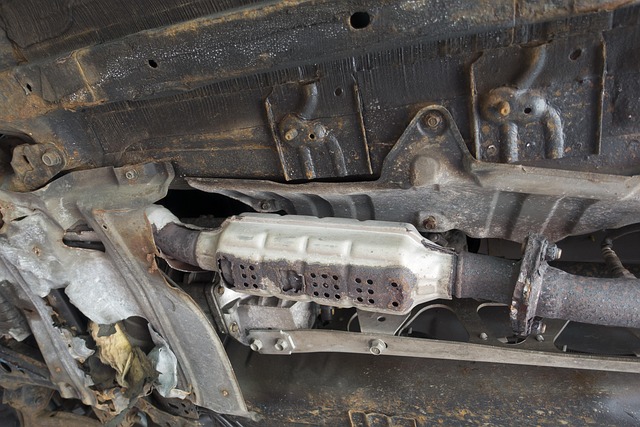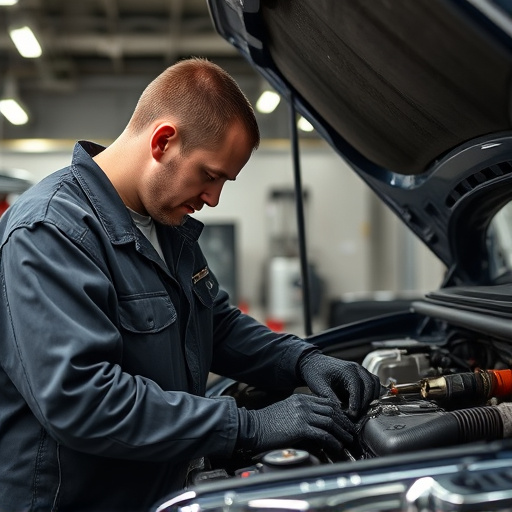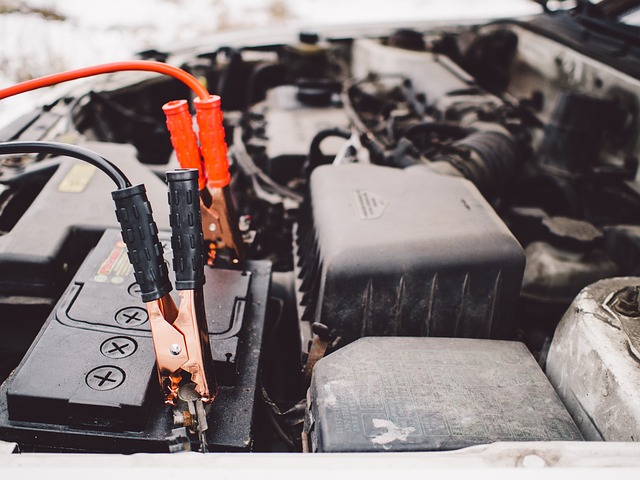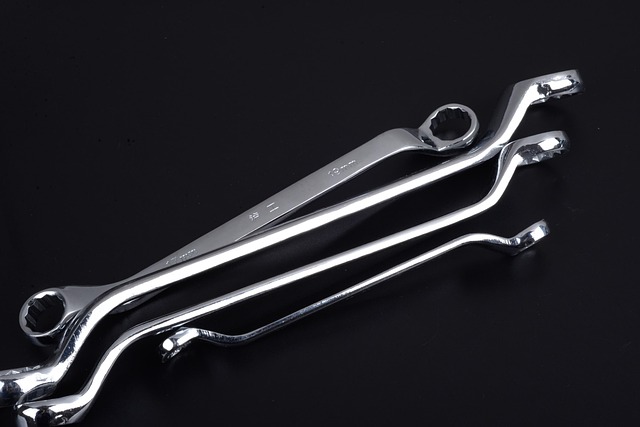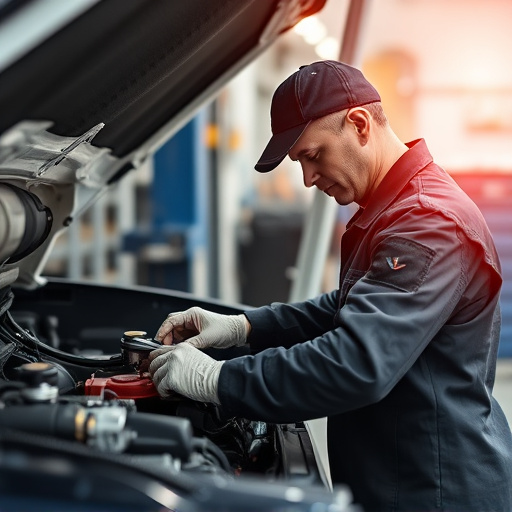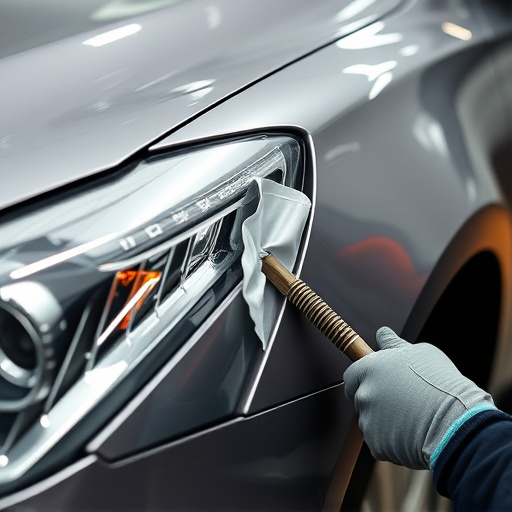Airbag safety certification, guided by international bodies like UNECE and NHTSA, is a global standard ensuring automotive airbags function correctly and safely during collisions. Technician accountability is crucial, as skilled technicians perform installation, maintenance, and repairs while adhering to strict protocols. Maintaining certification across auto body shops requires regular comprehensive training, hands-on practice, and frequent assessments. A culture of continuous learning and collaboration enhances quality control, ensuring safe airbag repairs and mitigating risks for vehicle occupants.
In the realm of automotive safety, airbag systems play a pivotal role in protecting lives. Global standards, like those set by ISO 26262, ensure their reliability. This article explores the intricate link between technician accountability and airbag safety certification. It delves into how skilled technicians are indispensable for maintaining the integrity of airbags, from installation to periodic maintenance. We also outline best practices for continuous technician competency, ensuring that only qualified hands handle these critical components, thereby enhancing overall vehicle safety.
- Understanding Airbag Safety Certification: A Global Standard
- The Role of Technician Accountability in Ensuring Airbag Reliability
- Best Practices for Maintaining Technician Competency and Certification
Understanding Airbag Safety Certification: A Global Standard

Airbag safety certification is a global standard that ensures automotive airbags function correctly and safely in the event of a collision. This rigorous process involves extensive testing and evaluation to meet or exceed regulatory requirements set by various international bodies, such as the United Nations Economic Commission for Europe (UNECE) and National Highway Traffic Safety Administration (NHTSA). Certification guarantees that airbags deploy optimally, minimizing risks and maximizing protection for vehicle occupants.
The importance of airbag safety certification cannot be overstated, especially when considering the intricate nature of modern automotive systems. Similar to car scratch repair or car paint repair, ensuring proper airbag deployment is crucial in mitigating potential car damage and personal injuries. By adhering to global standards, automakers demonstrate their commitment to passenger safety, fostering a culture of accountability that permeates every aspect of vehicle manufacturing and maintenance.
The Role of Technician Accountability in Ensuring Airbag Reliability

Technician accountability plays a pivotal role in upholding the reliability and safety standards of airbags, an essential component in modern vehicles. The process of airbag safety certification involves rigorous testing and quality control measures to ensure their effectiveness during accidents. However, it is not just the manufacturing stage that demands scrutiny; the actions and practices of technicians are equally critical.
Accountable technicians perform crucial tasks like proper installation, regular maintenance, and timely repairs, all of which contribute to airbag integrity. They follow strict protocols to inspect and diagnose issues with airbags, ensuring no compromise in safety. Moreover, their expertise in auto body services, including car scratch repair and vehicle restoration, enables them to address potential problems that could affect the overall functionality of airbags, thus strengthening the overall safety certification process.
Best Practices for Maintaining Technician Competency and Certification

Maintaining high standards of technician competency and certification is paramount for ensuring airbag safety certification across all auto body restoration and auto repair shops. Best practices involve ongoing training programs tailored to keep up with evolving vehicle technology, including advanced airbag systems. These programs should cover not only technical aspects but also regulatory updates, safety protocols, and hands-on practice sessions. Regular assessments and recertification processes are essential to guarantee that technicians remain proficient and knowledgeable in their field.
Furthermore, fostering a culture of continuous learning within auto collision repair facilities can significantly enhance overall quality control. Encouraging open communication, peer mentoring, and knowledge sharing creates an environment where best practices are not only discussed but also implemented effectively. This collaborative approach ensures that every technician involved in airbag safety certification is equipped with the latest skills required to perform critical repairs accurately and safely, thereby safeguarding lives on the road.
Airbag safety certification is a critical global standard ensuring vehicle passenger protection. Technician accountability plays a pivotal role in maintaining the reliability of airbags by upholding strict competency and certification practices. By adhering to best practices, the automotive industry can ensure that technicians are adequately trained and certified, thereby enhancing airbag performance and contributing to overall vehicle safety on a worldwide scale.


